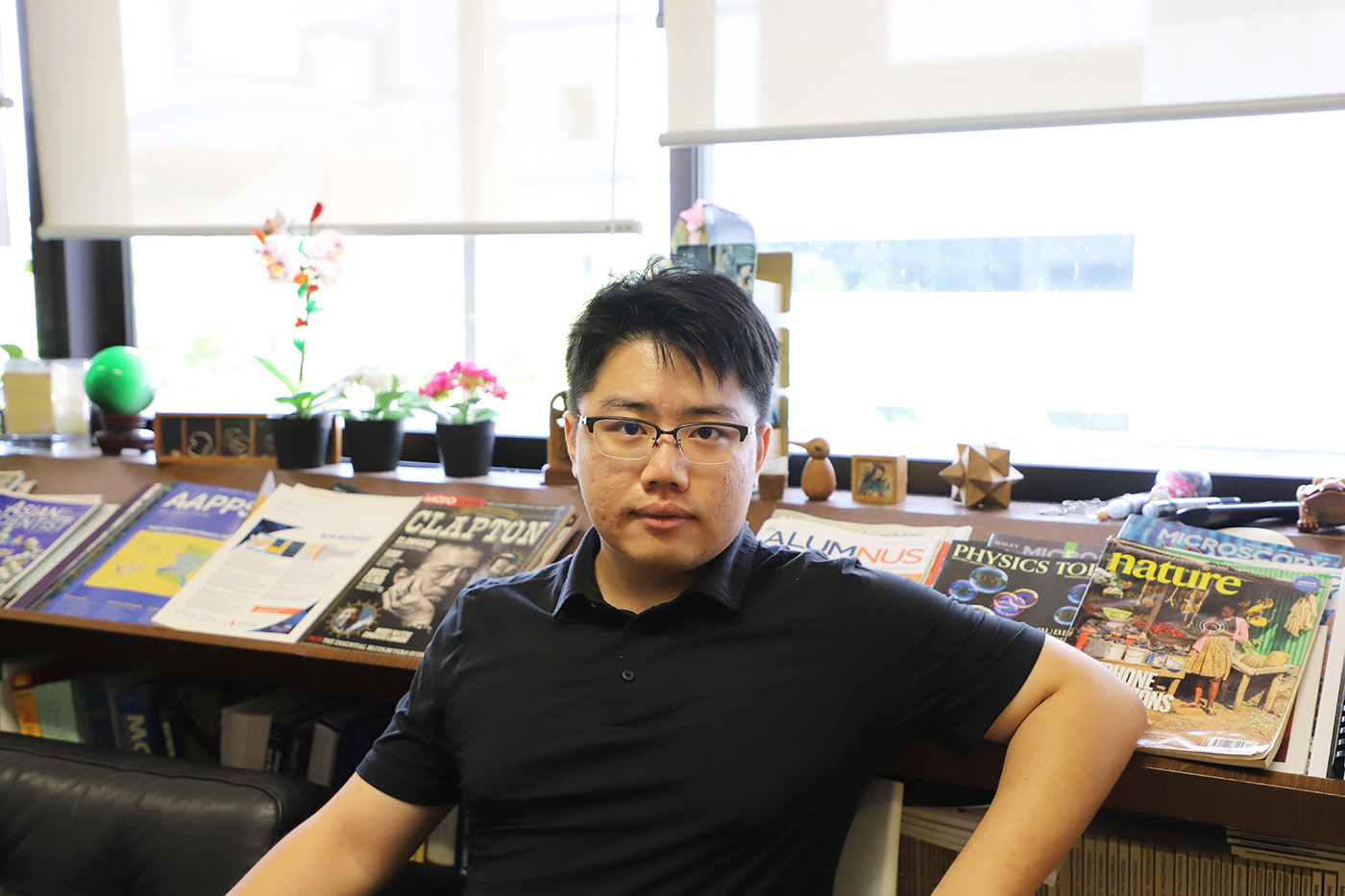Highlights
Meet a CQTian: Guo Naixu
 Naixu’s musical journey began when he knocked on the door of his teacher, Muka Fushimi, while he was living in Japan as an undergraduate.
Naixu’s musical journey began when he knocked on the door of his teacher, Muka Fushimi, while he was living in Japan as an undergraduate.
Can you tell us about yourself and how you came to be at CQT?
My name is Guo Naixu and I'm currently a third-year PhD student in Patrick Rebentrost's group. I finished my undergraduate and Master’s in Japan at Kyoto University and Osaka University. A reason I came here is because during my Master’s, my advisor Keisuke Fujii recommended that I go somewhere more competitive. Patrick's work matches my research interests and I emailed him. He replied that he can take students the next year, and I became his first admitted student.
You mentioned on your website that you're interested in the interaction between nature and intelligence. Can you share more?
My research is about algorithms, mainly quantum algorithms and quantum learning theory. When we talk about nature, quantum systems are a valid, great model to consider. Intelligence is about learning information from that model, or how can we utilise the model to achieve our aim. In that sense, all my research interests can be covered by this topic.
Is AI also a part of your research?
Yes, it is something I keep track of. For example, I have a work about the transformer, which is the model architecture for ChatGPT and the recent AI models in the news. We designed an algorithm for running the transformer architecture on a quantum computer and showed the potential to achieve a quantum advantage. This work was a lucky combination of insights developed in Patrick's group and a collaboration with the Al? Aspuru-Guzik group at the University of Toronto, in particular with Matthew Choi and Kouhei Nakaji (now at NVIDIA).
What is a current project that you're working on?
Now, I’m working on some collaborations. For example, with CQT Fellow Mile Gu, we have a project where we are designing a quantum algorithm about rare events that happen with very low probability.
There is another work I find quite interesting, where we come up a new strategy for solving the ordinary linear differential equations (ODE) on quantum computers. We show that one can achieve the task by embedding the ODE dynamics into the dynamics of a quantum open system described by the Lindblad master equation.
What are you enjoying about your work now?
The happiest moment is when I come up with an idea that works, the so-called ‚Äėaha‚Äô moment. It happens occasionally and suddenly ‚Äď an idea could occur to me when I am having lunch with my friend for example. The less exciting part of my work is doing all the detailed analysis, but that is necessary if you want to be rigorous.
You also mention on your website that you love the guqin. Can you share more?
The guqin is one of the most traditional instruments in China. It has a very long history, I think it's around 5000 years if you believe the legend. Guqin has been a necessary skill for the literati. There is a quote that ‚Äúa gentleman does not part with his qin without good reason (???????)‚ÄĚ.
I started to be interested in this instrument when I was an undergraduate. It was very lucky that I found out there is a great Japanese guqin master, Muka Fushimi, in Kyoto and he lived near my home. I directly knocked on his door and began this music journey. I quite enjoy this kind of fate.
Do you play frequently?
In Singapore, I do not play as often as I did in Japan. In Japan, I would play daily and have lessons each week. Now, I play roughly twice a week.
Do you have a favorite piece that you like to play?
My favourite is ???? (Kongtong Wen Dao), which is based on a Chinese legend described in Zhuangzi. The legend is about the Yellow Emperor going to Kongtong Mountain to ask Guangchengzi about using the Supreme Dao to rule the country. The reason why I like it is that during playing, I can really feel the pain you need to suffer to achieve your final goal. This always reminds me of the importance of being mentally robust.
For anyone who is interested, you can listen to this played by my teacher. There are many other variants that are quite different, please enjoy.
Learn more
Related Stories
Meet a CQTian: Zhu Di October 23 2024 | |
Meet a CQTian: Nayanthara Prathap July 05 2024 |






